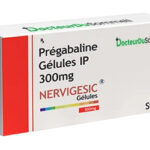Introduction
Agriculture remains the backbone of many economies, particularly in regions where farming is the primary livelihood. With rising demands for food and environmental challenges such as climate change, pests, and soil degradation, farmers face increasing pressure to produce more with fewer resources. To meet this demand sustainably, the use of modern agricultural products has become essential.
From crop nutrients to advanced protection methods, today’s agricultural solutions offer a wide array of tools that help farmers improve productivity, protect crops from threats, and enhance soil health. In this article, we will explore the role of modern agricultural products, how they contribute to better crop performance, and what considerations are important when selecting them.
The Role of Agricultural Products in Modern Farming
Agricultural products encompass a wide spectrum of inputs, including fertilizers, pesticides, herbicides, biostimulants, and soil enhancers. These tools serve specific purposes in the farming process, enabling plants to grow healthier and resist stress more effectively.
Fertilizers and Soil Health
One of the most critical components of crop production is soil fertility. Fertilizers supply essential nutrients such as nitrogen, phosphorus, and potassium that might be deficient in the soil. Organic and synthetic fertilizers are widely used depending on the type of crop and farming practices.
Moreover, balanced fertilization helps prevent nutrient depletion and contributes to sustainable land use. Micronutrients like zinc, boron, and iron also play a significant role in plant metabolism, even though they are required in smaller quantities.
Biostimulants and Crop Vitality
Biostimulants are emerging as a revolutionary input in the agricultural sector. These products improve nutrient uptake, increase tolerance to abiotic stress (such as drought or extreme heat), and enhance overall crop quality. They are derived from natural sources like seaweed extracts, amino acids, and beneficial microorganisms.
Unlike fertilizers, biostimulants don’t directly provide nutrients but instead stimulate the plant’s physiological processes. This can lead to improved root development, better flowering, and increased fruit set.
Crop Protection Products
Crop protection is vital to avoid yield losses due to pests, diseases, and weeds. Pesticides, fungicides, and herbicides are integral to this process. While they must be used responsibly to minimize environmental impact, they remain essential in commercial farming.
Integrated Pest Management (IPM) strategies often combine chemical controls with biological and cultural methods to achieve sustainable pest control. This helps reduce resistance development and minimizes harm to beneficial insects.
Benefits of Using High-Quality Agricultural Inputs
Investing in premium agricultural products may appear costly at first, but the long-term benefits are substantial. Farmers who adopt quality inputs typically experience higher yields, better-quality produce, and fewer losses due to pests or environmental stress.
Increased Crop Yields
The most immediate benefit of modern agricultural inputs is a noticeable increase in yield. Nutrient-rich soils, protected plants, and enhanced growth processes contribute to better harvests. This is especially critical in areas with limited arable land, where maximizing per-acre output is a necessity.
Improved Crop Quality
Consumers today demand high-quality, residue-free produce. Products such as slow-release fertilizers and targeted pesticides help meet these demands by ensuring crops grow in optimal conditions without overexposure to chemicals.
Reduced Crop Loss
Losses due to pests and diseases can devastate a farming season. By using effective pesticides and protective inputs at the right time, farmers can prevent outbreaks and protect their crops during vulnerable growth stages.
Choosing the Right Products for Your Farm
Selecting the most suitable agricultural inputs depends on several factors, including crop type, soil condition, local climate, and pest presence. It is always recommended that farmers consult with agronomists or agricultural extension services before making a decision.
Understanding Your Soil and Crop Needs
Soil testing is the first step toward understanding what your land requires. A detailed soil analysis can reveal nutrient deficiencies, pH levels, and organic matter content. Based on this data, farmers can choose the appropriate fertilizer blend.
Crops also have different nutrient demands at each growth stage. For instance, nitrogen is crucial during the vegetative phase, while potassium plays a bigger role during fruit development. Choosing a product that aligns with these stages ensures efficient resource use.
Timing and Application Methods
The effectiveness of agricultural products depends heavily on when and how they are applied. Overuse or incorrect application can not only waste resources but also harm the crop. For instance, spraying pesticides during the hottest part of the day can reduce their effectiveness and increase evaporation loss.
Precision farming techniques such as GPS-guided sprayers, drip fertigation, and drone applications are improving accuracy and reducing waste. Farmers should invest in training and equipment that help improve application efficiency.
Sustainable Practices in Product Use
The future of agriculture products near me lies in sustainability. As awareness of environmental issues grows, farmers are encouraged to use products that are not only effective but also environmentally friendly. This includes biodegradable pesticides, organic inputs, and controlled-release fertilizers that minimize leaching and runoff.
Incorporating crop rotation, cover crops, and organic compost can reduce the dependency on synthetic products while improving soil health. Regulatory bodies and agricultural organizations worldwide are also pushing for more sustainable farming certifications and programs.
The Role of Local Agricultural Supply Networks
Accessibility to the right products is essential for small and large-scale farmers alike. Local suppliers play a critical role in ensuring farmers get timely access to quality agricultural products. They also act as a bridge between manufacturers and the farming community, offering advice, training, and support.
In rural regions where agriculture dominates the economy, the presence of knowledgeable distributors can transform productivity levels. This is especially true in developing areas where farmers may not have direct access to agricultural research or institutions.
Midway through the agricultural season, many farmers seek advice on pest control and crop protection strategies. In such cases, connecting with pesticide suppliers near Okara can be an effective step. These suppliers often have region-specific insights into pest cycles, local crop varieties, and the most effective protection products, making them a valuable resource for Okara’s farming community.
Future Trends in Agricultural Product Development
Agriculture is undergoing a technological transformation. As digital farming becomes more prevalent, so too does the development of advanced agricultural inputs. Here are a few future-forward trends worth watching:
Smart Formulations
Many companies are investing in “smart” products that release nutrients only when needed by the plant. This minimizes environmental waste and ensures the crop receives nutrients at the correct growth phase.
Bio-Based Solutions
There’s growing demand for bio-based pesticides and fertilizers. These are derived from natural sources and pose less risk to human health and the environment. Microbial formulations that work symbiotically with plants are a key area of development.
Digital Agriculture Integration
Agricultural inputs are increasingly being integrated with digital platforms. Apps that track soil health, predict pest infestations, and recommend input schedules based on weather forecasts are becoming more accessible to farmers globally.
Challenges Farmers Face with Product Selection
Despite the availability of high-quality products, many farmers still face challenges when it comes to selection and usage. A lack of education, limited access to extension services, and misinformation can lead to poor application and wastage.
Counterfeit products are another concern in some regions. These not only fail to deliver results but also cause long-term harm to crops and soil. Farmers must verify the authenticity of inputs by purchasing from certified suppliers and checking registration numbers and product labels carefully.
Conclusion
Modern agricultural products are essential tools in today’s farming landscape. They provide the means to increase yield, improve crop quality, and protect harvests from a wide range of threats. However, their effectiveness depends on proper selection, responsible use, and integration with broader sustainable practices.
As agriculture continues to evolve, it’s important for farmers to stay informed about the latest developments, leverage local expertise, and adopt inputs that align with their specific farm conditions. By doing so, they can not only secure better incomes but also contribute to food security and environmental stewardship for future generations.
- Modern Agricultural Products for Better Crop Yields
- Discover how modern agricultural products improve crop yields, protect against pests, and promote sustainable farming for small and large-scale growers.
- pestcontrol
Related posts:
 What Are the Key Considerations Before Getting Filler Injections?
What Are the Key Considerations Before Getting Filler Injections?
 Dr. Kami Hoss Gives Out the Truth About Brushing & Flossing-Protecting Your Teeth
Dr. Kami Hoss Gives Out the Truth About Brushing & Flossing-Protecting Your Teeth
 Can Atrial Fibrillation Be Cured? Latest Research & Insights
Can Atrial Fibrillation Be Cured? Latest Research & Insights
 Expert Lung Care in Jaipur: Why You Shouldn’t Ignore Breathing Issues
Expert Lung Care in Jaipur: Why You Shouldn’t Ignore Breathing Issues
 Control Fasting Blood Sugar with Confidence – Get Glycomet Online Today
Control Fasting Blood Sugar with Confidence – Get Glycomet Online Today
 Effective Weight Loss Clinic Killeen: Your Path to Lasting Results
Effective Weight Loss Clinic Killeen: Your Path to Lasting Results
 How to Prepare for Your Appointment with the Best Plastic Surgeon in dubai for Fillers
How to Prepare for Your Appointment with the Best Plastic Surgeon in dubai for Fillers
 Comment les analgésiques sur ordonnance se comparent-ils aux options en vente libre ?
Comment les analgésiques sur ordonnance se comparent-ils aux options en vente libre ?








